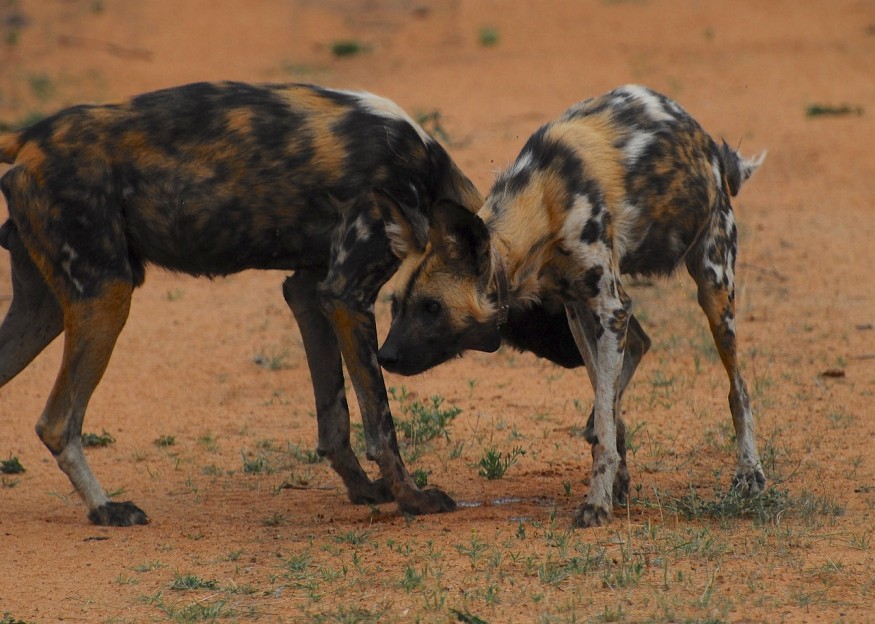African wild dogs, also called African painted dogs, could be cooked into extinction due to hot temperatures amid climate change and global warming, according to a new study led by scientists from the United Kingdom.
The looming extinction threat seems inevitable despite previous findings that animals have evolved to cope or adapt to extreme climatic conditions, based on a recent research paper.
Although many animal species and groups, especially those in the polar regions, are threatened by the current climate crisis, the said study is significant since it implies that even animals living in the tropics or subtropics are also at risk.
While it is challenging to predict the potential extinction of certain species in the future, the U.K. scientists involved in the research have developed a method to determine the potential extinction of the African painted dogs.
In recent years, related studies have shown that the impact of a warming planet due to anthropogenic greenhouse gas emissions and fossil fuel burning has a devastating impact on marine life.
Now, the U.K. study, which focuses on the wild animals of Africa, provides a theoretical balance to the potential demise of terrestrial animals and their habitats.
African Painted Dogs

Also known as Cape hunting dogs, the African wild dog (Lycaon pictus) is endemic or native to sub-Saharan Africa. They have significant populations in Botswana, Mozambique, Namibia, Tanzania, and Zimbabwe.
These wild canines have the largest populations in Tanzania and northern Mozambique, according to the World Wildlife Fund (WWF).
The WWF said that L. pictus has a conservation status "endangered species" with only 1,409 population remaining in the said African region's deserts, forests, and grasslands areas.
These wild animals have relatively high survival skills since they hunt in packs and are considered opportunistic predators by experts.
Despite their known resilience in the wild, the African painted dogs are now critically susceptible to heatwaves and scorching temperatures brought by human-induced climate change.
Brink of Extinction
In the study published in the journal Global Change Biology on August 22, researchers found that climate change could push species, such as African painted dogs, beyond their limit to cope with extreme climates.
For instance, the ecological repercussions of heat domes or droughts could decrease the group sizes of local African wild dogs.
With this, the species could reach a point where they could no longer reproduce efficiently.
To determine the species' extinction timeline, the U.K. research team used single-sex individual-based model integrating factors such as demographic responses to ambient temperature with regard to the endangered species, according to the Global Change Biology study.
In spite of the recent findings, the research team acknowledged that predicting the extinction risk of a species is still not a grand theory, since there are multiple factors that can drive extinction such as weather-related phenomena, food resources, and even conservation efforts.
While the study is concentrated on African painted dogs, future research could also apply the same scenario to other mammals worldwide.
© 2026 NatureWorldNews.com All rights reserved. Do not reproduce without permission.





